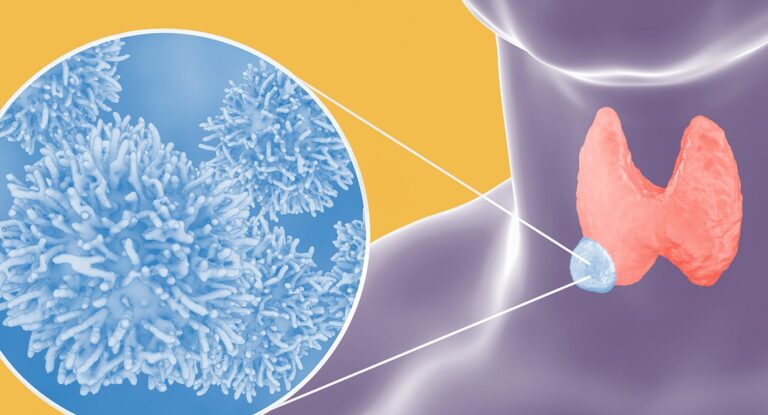Children are among the most vulnerable when it comes to thyroid disorders. While these conditions can be hard for adults to identify, they can be especially difficult for pediatricians and parents to recognize in their young patients.
In this article, we will explore the signs of pediatric thyroid disorders so that families can better understand how to identify them early on and provide appropriate care.
Introduction to Pediatric Thyroid Disorders
Pediatric thyroid disorders are challenging conditions that can affect children of all ages. These medical issues involve the malfunctioning of the thyroid gland, which is located in the neck and produces hormones that regulate metabolism, growth, and development.
In pediatric patients, a variety of symptoms may arise from such disorders including fatigue, weight gain or loss, mood changes, constipation, or diarrhea. Parents need to be aware of these symptoms so they can identify them early on if their child develops an issue with their thyroid.
Early detection is key as many pediatric thyroid disorders can be managed through lifestyle modifications and medication therapy. With prompt diagnosis and treatment options available today, it is possible for children affected by these conditions to live full lives with minimal disruption caused by their disorder.
Types of Thyroid Disorders in Children

When it comes to pediatric thyroid disorders, several types of thyroid conditions can affect children. These include hypothyroidism, hyperthyroidism, goiter, and thyroid nodules.
Hypothyroidism is a condition where the body does not produce enough hormones from the thyroid gland. Symptoms may include fatigue, weight gain, dry skin, and constipation. Hyperthyroidism is an overactive thyroid causing symptoms such as rapid heart rate, nervousness or anxiety, and difficulty sleeping.
Goiter can cause the neck to swell due to enlargement of the thyroid gland while nodules are lumps or growths in the tissue of the gland itself. All these conditions can have serious implications if left untreated so early diagnosis and medical treatment is essential for proper management.
Symptoms and Diagnosis of Pediatric Thyroid Conditions
The signs and symptoms of pediatric thyroid conditions may be hard to recognize, as they can vary greatly from one child to another. Common signs may include fatigue, weight gain, constipation, dry skin, or hair loss.
In some cases, the child may also exhibit a slow heart rate, low body temperature, or an enlarged thyroid gland located at the base of the neck. A blood test is typically used to diagnose a pediatric thyroid condition to measure levels of hormones released by the gland.
An ultrasound of the area may also be performed in order to gain more information about any associated toes. Depending on the results from these tests, other scans such as a radioactive iodine scan or CT scan could be ordered for further evaluation.
Knowing how to identify potential symptoms and seeking medical advice if needed can help ensure that children receive appropriate treatment for any underlying thyroid issues quickly and effectively.
Treatment Options for Pediatric Thyroid Disorders
When it comes to treating pediatric thyroid disorders, the treatment options available will depend on the specific condition. For some conditions, such as Hashimotos Thyroiditis and Graves Disease, hormones may be prescribed to treat an underactive or overactive thyroid gland.
In addition, medications like levothyroxine can be used in cases of hypothyroidism to boost levels of the hormone thyroxine. Other treatments for these types of disorders may include radioactive iodine therapy or even surgery if necessary.
A doctor should also recommend lifestyle modifications that can help reduce symptoms and improve the quality of life for children with a thyroid disorder. These changes could include reducing stress levels through regular exercise or relaxation techniques; eating a balanced diet rich in fruits and vegetables; avoiding foods containing gluten; limiting sugar intake; and getting enough sleep each night.
By taking all steps necessary to manage their child’s thyroid disorder properly, parents can ensure their child leads a healthy life with minimal disruption from this condition.
Long-Term Outlook for Children with Thyroid Dysfunction

The long-term outlook for children with thyroid dysfunction is highly dependent on the type and severity of the disorder. While some conditions may require lifelong medical care, others can be easily managed with medication or lifestyle changes.
It is important to recognize potential signs of a thyroid disorder in children as early diagnosis and treatment are key to reducing symptoms and preventing further complications. With proper management, most thyroid disorders can be controlled and many children will lead normal lives into adulthood.
Early detection through regular checkups (including blood tests) with a healthcare provider is essential for ensuring positive outcomes long term.
Conclusion
To conclude, pediatric thyroid disorders are a complex and potentially serious health issue that can have lifelong consequences if not properly managed. Early detection is key to preventing serious complications in children with an underlying thyroid disorder, so parents need to be aware of the signs and symptoms associated with these conditions.
Thyroid test should be considered when any of the above symptoms appear or persist over time as this could indicate an underlying thyroid problem that needs further medical evaluation and treatment.

